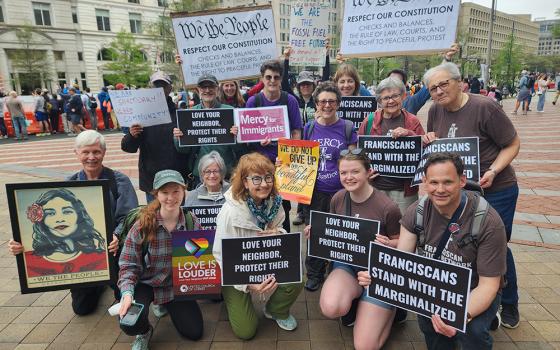The Supreme Court refused to get involved in the national debate over same-sex marriage on Monday, leaving intact lower court rulings that will legalize the practice in 11 additional states.
The unexpected decision by the justices, announced without further explanation, immediately affects five states in which federal appeals courts had struck down bans against gay marriage: Virginia, Indiana, Wisconsin, Oklahoma and Utah.
It also will bring along six other states located in the judicial circuits overseen by those federal appeals courts: North Carolina, South Carolina, West Virginia, Colorado, Kansas and Wyoming.
The action will bring to 30 the number of states where gays and lesbians can marry. Appeals courts in Cincinnati and San Francisco are considering cases that could expand that number further, presuming the Supreme Court remains outside the legal fray.
Most court-watchers had predicted the justices would hear one or more cases this term and issue a verdict with nationwide implications by next June. But the justices, perhaps sensing that the country is headed toward legalizing gay marriage without their involvement, chose to deny states' appeals.
Nineteen states and the District of Columbia currently permit same-sex marriage, and the high court ruled last year that the federal government cannot deny benefits to such couples. It sidestepped the remaining state laws by taking no position on the merits of California's Proposition 8 ban, which had been struck down by lower federal courts.
Since those decisions were handed down, six additional states have legalized gay marriage, and federal and state judges in 14 more states have overturned marriage bans, beginning with Utah last December. All those rulings have been put on hold during the appeals process, leaving 31 bans in place.
The cases that had been under consideration included those from three federal appeals courts:
- A three-judge panel of the U.S. Court of Appeals for the Denver-based 10th Circuit ruled 2-1 in June and July that same-sex couples in Utah and Oklahoma have "the same fundamental right" to marry as heterosexuals.
- A three-judge panel of the U.S. Court of Appeals for the Richmond, Va.-based 4th Circuit ruled 2-1 in July that gay men and lesbians have a constitutional right to marry that is paramount to state marriage laws.
- A three-judge panel of the U.S. Court of Appeals for the Chicago-based 7th Circuit declared unanimously last month that gay marriage bans in Indiana and Wisconsin threaten "the welfare of American children."
Last month, a federal district judge in Louisiana became the first to uphold a state's ban in the wake of last year's Supreme Court rulings. Until then, gay marriage proponents had won every federal case.
[Richard Wolf writes for USA Today.]



